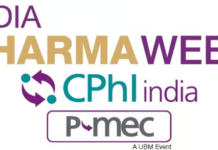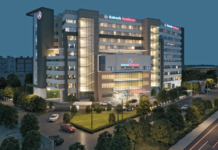New Delhi, September 08, 2021: The Supreme Court observed that a medical professional cannot be held negligent merely because the treatment is not successful or the patient dies during surgery.
To indicate negligence, the bench of Justices Hemant Gupta and AS Bopanna said, there should be material available on record or else appropriate medical evidence should be tendered.
The court said that the principle of res ipsa loquitur (mere occurrence of some types of accident is sufficient to imply negligence) can be applied when the negligence alleged is so glaring and not based on perception.
In this case, the claimant’s wife, who was admitted in the Hospital after diagnosed with kidney stone, died after a surgery performed on her. Alleging medical negligence, the approached the National Consumer Disputes Redressal Commission. The NCDRC held the Doctor and Hospital guilty of medical negligence and has directed payment of Rupees Seventeen Lakhs only with interest as compensation.
In appeal, the bench noted that in this case, apart from the allegations made by the claimants before the NCDRC, there is no other medical evidence tendered by the complainant to indicate negligence on the part of the doctors.
“It is clear that in every case where the treatment is not successful or the patient dies during surgery, it cannot be automatically assumed that the medical Page 13 of 27 professional was negligent. To indicate negligence there should be material available on record or else appropriate medical evidence should be tendered. The negligence alleged should be so glaring, in which event the principle of res ipsa loquitur could be made applicable and not based on perception. In the instant case, apart from the allegations made by the claimants before the NCDRC both in the complaint and in the affidavit filed in the proceedings, there is no other medical evidence tendered by the complainant to indicate negligence on the part of the doctors who, on their own behalf had explained their position relating to the medical process in their affidavit to explain there was no negligence.”, the court said according to the reports published in livelaw.in.
The Court also observed that enquiry that was conducted by the District Magistrate cannot be considered as medical evidence to hold negligence on the part of the doctors or the hospital in the matter of conducting the second surgery and the condition of the patient. Allowing the appeal, the court observed:
23. In the above circumstance when there was no medical evidence available before the NCDRC on the crucial medical aspect which required such opinion, the mere reliance placed on the magisterial enquiry would not be sufficient. Though the opinion of the civil surgeon who was a member of the committee is contained in the report, the same cannot be taken as conclusive since such report does not have the statutory flavour nor was the civil surgeon who had tendered his opinion available for cross examination or seeking answers by way of interrogatories on the medical aspects. Therefore, if all these aspects are kept in view, the correctness or otherwise of the line of treatment and the decision to conduct the operation and the method followed were all required to be considered in the background of the medical evidence in the particular facts of this case. As indicated, the mere legal principles and the general standard of assessment was not sufficient in a matter of the present nature when the very same patient in the same set up had undergone a successful operation conducted by the same team of doctors. Hence, the conclusion as reached by the NCDRC is not sustainable.”
























